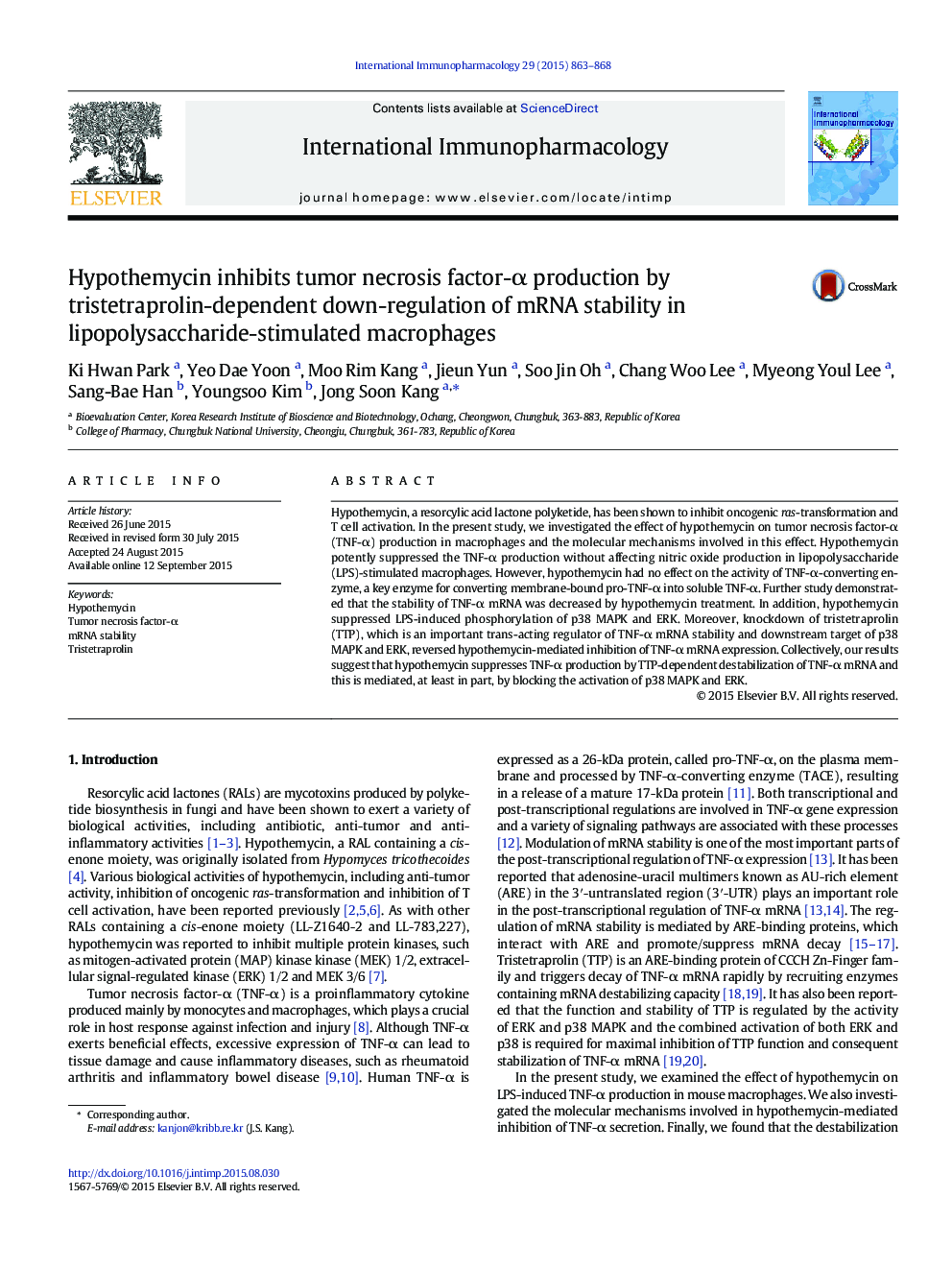| Article ID | Journal | Published Year | Pages | File Type |
|---|---|---|---|---|
| 5832311 | International Immunopharmacology | 2015 | 6 Pages |
Abstract
Hypothemycin, a resorcylic acid lactone polyketide, has been shown to inhibit oncogenic ras-transformation and T cell activation. In the present study, we investigated the effect of hypothemycin on tumor necrosis factor-α (TNF-α) production in macrophages and the molecular mechanisms involved in this effect. Hypothemycin potently suppressed the TNF-α production without affecting nitric oxide production in lipopolysaccharide (LPS)-stimulated macrophages. However, hypothemycin had no effect on the activity of TNF-α-converting enzyme, a key enzyme for converting membrane-bound pro-TNF-α into soluble TNF-α. Further study demonstrated that the stability of TNF-α mRNA was decreased by hypothemycin treatment. In addition, hypothemycin suppressed LPS-induced phosphorylation of p38 MAPK and ERK. Moreover, knockdown of tristetraprolin (TTP), which is an important trans-acting regulator of TNF-α mRNA stability and downstream target of p38 MAPK and ERK, reversed hypothemycin-mediated inhibition of TNF-α mRNA expression. Collectively, our results suggest that hypothemycin suppresses TNF-α production by TTP-dependent destabilization of TNF-α mRNA and this is mediated, at least in part, by blocking the activation of p38 MAPK and ERK.
Related Topics
Life Sciences
Immunology and Microbiology
Immunology
Authors
Ki Hwan Park, Yeo Dae Yoon, Moo Rim Kang, Jieun Yun, Soo Jin Oh, Chang Woo Lee, Myeong Youl Lee, Sang-Bae Han, Youngsoo Kim, Jong Soon Kang,
